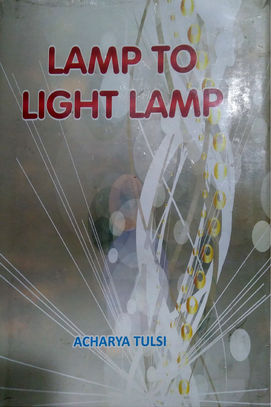Man has a natural tendency to imitate. It is only on the basis of this tendency that sociability develops. A new born child sees everyone in the family speaking and he learns to speak. If the same child is kept in seclusion for years and all his links of contact are snapped, his speech cannot grow. He becomes dumb. Like speaking there are many other activities that can be picked up only by observing. From this point of view, imitation has its own importance. This is absolutely required for making progress. This trend of imitation, however, does not end with childhood. Imitating continues in many things even after one attains age.
It is said that if a survey is conducted among the adults, the tendency to imitate s found to be stronger in women that in men. It is not that men do not imitate. Bu their imitation has certain limits. From several points of view, imitation is good, provided it is done with discretion. Without discretion, it becomes blind imitation. It has no possibility of benefit or development. There are some activities whose imitation brings more harm than good. On such occasions, it is absolutely necessary to keep open the eye of discretion.
I am not opposed to tradition. It is necessary that good traditions get transmitted from one generation to the other. The country or society, in which tradition is broken with a snap as though it is a glass vessel, cannot preserve its cultural and social heritage. But this does not mean that all traditional activities, desirable or undesirable, should be carried forward or imitated. Before imitating any activity, let us pause a while and think about its impact on life, irrespective of whether that activity is of immediate or long lasting importance.
Some people of the younger generation grow their nails. Someone must have started growing the nails with some purpose. It is possible that this practice started with the idea of marking oneself distinct from others. Then the practice continued as imitation. Many young men and women started having long nails. I asked a young man the reason for growing his nails. He was confounded out of his wits. He could give no explanation. Women may be seeing beauty in their overgrown nails. But according to the ancient depictions, they are shown as a symbol of demonic trait.
It is not merely the matter of growing nails. High-heeled sandals, clothes of distinct designs, hair styles, the practice of cutting birthday cakes etc. are a number of activities done as imitation. Those who are engaged in these activities are not aware of their utility. Nor do they have any idea of their invasion on our own culture. Professional people have one aim before them—to pile up as much money as possible. They bring new items in the fashion market. But if those who make use of those things only continue to imitate, when would they think of what is in their interest and what is not?
There is a new activity catching up in big cities—that of fashioning fruits and vegetables in the shape of animals and birds, or adopt those shapes in interior decoration or in their food items. Granted that these are artificial animals and birds. But there is a possibility that the future generation would be imperceptibly drawn towards non-vegetarian food. In a way this is a direct assault on our culture which is basically non-violent. There can be many other activities of similar nature. There is only one solution to all these problems –that there is complete awareness in the matter of imitation. Only when this is done, would it be possible to put a stop to undesirable activities.
 Acharya Tulsi
Acharya Tulsi
